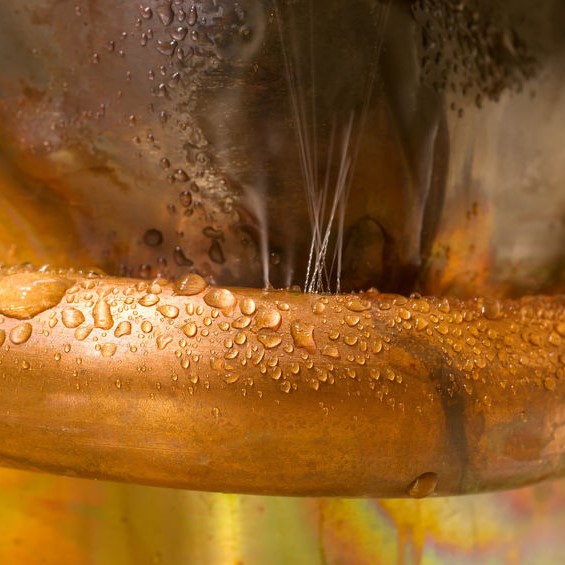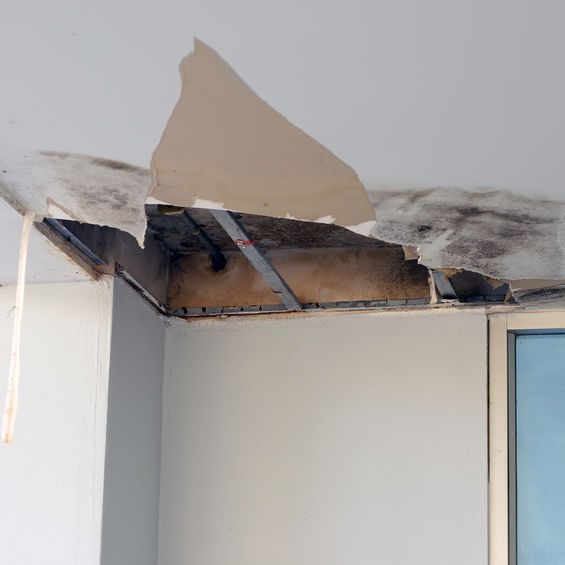
What causes a plumbing leak?
When you see a faucet dripping or hear water running in the toilet tank, you know you have a water leak of sorts. Unfortunately, not all water leaks are as easily discovered and can go on for days, weeks, months, maybe years before any plumbing leak detection is made. Those types of plumbing leak detection and repairs are usually expensive and extensive.
The first step in plumbing leak detection is finding the leak then determining what is causing the leak. If you notice a possible water leak and ignore it, the havoc it can cause is unlimited and unmerciful. The worst thing about an unaddressed water leak is flooding and the next worse thing is the black mold that can start growing. Last, but not least, the next worse thing to a water leak is your water bill.
So, we have stated three things that are the dreaded results of a plumbing leak, let’s look at the things that can cause a leak:
- Foundation shifting: When a house with a foundation settles and shifts, it can adjust the water lines. When those adjustments are exactly right, they can slightly disconnect or loosen pipes, causing them to start a slow leak. Or worse, or maybe it would be better because you wouldn’t need professional plumbing leak detection, the shifting and settling can break pipes and create a massive rupture of water.
- High water pressure: Did you know you can often adjust your water pressure at the water meter? This would be more so in older homes, but if you’re having a constant water line break in a certain area, it can the water pressure is high. As water zips from the meter and through your water lines, if the pressure is too high, it can weaken and damage the pipes, causing them to break and bust. If that water isn’t just spewing upward, it may take professional plumbing leak detection to find where the leak is before it can be stopped.
- Tree roots: The job of tree roots is to find water to nourish the tree. Your water pipes could have the tiniest crack with the slightest of leaks and tree roots will find that water. When the0 tree roots sense moisture, they start growing towards that water and will force their way into those cracks. Before you know it, there is clogged sewer lines and/or busted water pipes.
- Pipe Corrosion: This is more common in older homes were copper pipes or galvanized pipes were used the most. Metal piping is easily susceptible to rust and rust weakens the metal. Eventually the pipes break at that rusted areas and then there is leaking.
- Changing Temperatures: Areas where the weather can make extreme changes can cause water pipes to break. Ground is cold and the pipes are cold, then it heats up only to get cold again. Water pipes can only take so much back and forth in temperature before it wears them or their connections out.
How do you find a plumbing leak?
As much as we depend on water, it can be the enemy too when it comes to water leaks around the home. Your furnishing and the structure of your home can be damaged beyond repair. Unfortunately, plumbing leaks are pretty common and there is a bigger chance you will experience one than you won’t at so point of homeownership. However, if you know ways to find a suspected water leak, you can get a jump on it before it becomes a problem.
- Monitor Your Water Bill: Monthly water bills are often the best plumbing leak detection. When they become extremely high for no obvious reason (like guests or watering the lawn), it is usually an indicator there is a water leak.
- Water Meter Watching: This is the next best plumbing leak detection tool. If you suspect your home has a water leak and you’re not finding any obvious signs, watch the water meter after turning everything off that is water driven. With everything water using thing turned off, if the water meter moves, you have a water leak somewhere.
- Greener Grass Patches: A lush lawn is beautiful, but if there only one area, or a patch that is greener than the rest of the law, there may be a buried water line leaking. If there are puddles in that area and it hasn’t rained, then that is a great plumbing leak detection indicator.
- Appliances and Fixtures: Check under your cabinets, behind the washing machine, and around the toilets. Anywhere water is used, check for small leaks. If you find any, turn the water off to that appliance or fixture and if you aren’t a DIY homeowner, call your plumber.
- Toilet Testing: Another easy plumbing leak detection you can do is test the toilet for an interior leak with food coloring. The flapper could be brittle and worn, allowing a constant trickle of water. A few drops of food coloring in the tank and you’ll know when you see colored water in the toilet bowl. This is a simple fix, but if you’re not comfortable with replacing that rubber flapper, call a plumber.
Can plumbers detect leaks?
Yes, along with installing and repairing plumbing, leak detection is one of the main things they are trained for doing. They will use the same things we’ve discussed above, and they also have plumbing leak detection equipment. They have audio and visual tools to help them find leaks that are int the foundation, in the wall, and underground.
Is plumbing leak detection expensive?
There are few factors that can determine the cause of a plumbing leak detection, beginning with where you are located. Prices for anything can vary from city to city, state to state. Other factors that will affect the cost of a professional plumbing leak detection is finding the general area of the leak, where the leak is located and the equipment (if any) that is used by the plumber. Different plumbing contractors and company charge different rates also, so you may want to call around a get a few phone estimates before scheduling an appointment.
How does plumbing leak detection work?
A plumbing leak detection system can be installed inline to your home’s plumbing that will meticulously monitor the water flow as it passes through the water pipes. When it detects an irregularity, it shuts the water off at the main point of entry.
That irregularity can be a jammed toilet flapper or water left running in a sink or tub. It can be water pipes busting in the walls or under the house, anywhere that water shouldn’t be flowing for long, or at all, escalated water use signals to this method of plumbing leak detection and the water is automatically turned off.

Is there a tool to detect water leak?
We’ve all seen the old western movies where they used a Y shaped stick to find water, and we all know that doesn’t really work. The most effective plumbing leak detection tool today is sound detection equipment. With headphones and a microphone, a plumber trained on this equipment can listen to your plumbing and find where that traveling water is coming from.
As a homeowner paying a plumber to find a leak, you have to wonder how accurate is leak detection? Today, with modern plumbing leak detection technology available, plumbers are trained to know how to use plumbing leak detection and are able to determine the precise spot of a plumbing leak. The days of digging up your lawn or jackhammering the foundation are all but a memory. The methods available to plumbers today are non-destructive and non-invasive, and even better, accurate! Call 661-201-6016 today.

